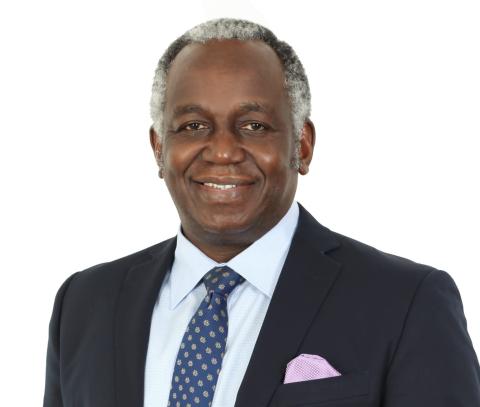
This was disclosed by Silvia Fernandes de Gumendi, President, Assembly of State Parties to the Rome Statute.
A Nigerian, Ibrahim James Pam has been shortlisted for the position of the Registrar of the International Criminal Court.
This was disclosed by Silvia Fernandes de Gumendi, President, Assembly of State Parties to the Rome Statute.

According to the statement, Pam was shortlisted alongside 11 other candidates from various parts of the world.
The position of the Registrar will become vacant on June 16, 2023.
Eighty-eight applications, Gumendi said, were received by the Court on equal representation and to ensure gender balance according to the provisions of the Court, out of which 12 were shortlisted, including Pam.
In the pitch by Pam, he stated that he is pleased to announce his interest in the position of Registrar of the International Criminal Court.
He said, “I am pleased to provide a statement of my motivation and interest in the position of Registrar of the International Criminal Court.
“Having worked in the area of international criminal justice, investigations and prosecution of Rome Statute crimes, internal oversight, administrative and criminal investigations, fraud risk management and fraud prevention at national and international level over the last twenty-two years, and given the diversity of my experience over this period, in addition to twelve years of banking and litigation experience as a Barrister and Solicitor of the Supreme Court of Nigeria prior to that, I offer myself for consideration for the position of Registrar of the International Criminal Court.
“This noble mission of the Court is one that deeply resonates with me, and one that must be at the heart of the operations of the Office of the Registrar. In my professional career I have had the privilege to serve the course of justice at both national and international levels, and particularly in countries across Africa that have borne the scars of mass atrocities, including Nigeria, Chad, Central African Republic, Sudan, South Sudan, Uganda, Mali, Senegal and Kenya.
“As Principal Administrative Officer responsible for the efficient and accountable administration and servicing of the non-judicial aspects of the ICC as set out in Article 43 of the Rome Statute, the Registrar has primary obligation to ensure the effective management of the processes that safeguard the ability of the other organs of the Court to efficiently discharge their mandates.
“As Registrar I will appreciate the dual character of the Court as both a judicial entity and an international organization, and therefore ensure the preservation of this dichotomy in a manner that guarantees independence whilst ensuring seamless efficiency. In undertaking the task of the Registrar ICC, I appreciate the need to have a strategic vision of the Court and its fundamental mission which, in the words of the Preamble to the Rome Statute, is to put an end to impunity for the perpetrators of the worst crimes known to man and to contribute to the prevention of such crimes. It is on this that I will build the strategic vision of my tenure as Registrar, faithfully working to accomplish the noble mission of the Court.
“In my years of experience in international institutions with important mandates, I have developed strong leadership qualities and strategic thinking, as well as the ability to lead and inspire colleagues.
"I will bring this wealth of experience that I have acquired to bear in the execution of the responsibilities of the Office of Registrar of the ICC.
“It will be my priority to adequately resource and motivate the staff of the ICC to execute their tasks, and to ensure that the work environment is both physically and psychologically conducive to the fulfilment of the mission of ICC personnel.
"The value of a conducive workplace in the attainment of the noble mission of the Court cannot be exaggerated. I am aware that this is currently an important issue in consequence of the report of the Independent Expert Review Panel appointed by the Assembly of States Parties as part of the overall Court-wide review of the ICC.
“In my experience leading accountability functions in UN field missions, at the African Development Bank, and at the Green Climate Fund, I have helped to create value-based work cultures that respond to the aspirations of working personnel, and meet the basic standards set for the international civil service and by the administrative tribunals.
“By executing my primary function in providing integrity oversight at the Green Climate Fund, I enabled the formation of administrative responses to address workplace issues. Some of the features of the reforms that were instituted by the Executive Director of the Fund include open and transparent consultation processes that defined the values of the institution and created an improved Employee Value Proposition; strengthened internal redress mechanisms of the Fund to create effective alternative, non-conflictual redress options for staff conflicts (including a strengthened Ombudsman function and an office mediator); and enhanced capacity for managers and supervisors to improve their management practices in addressing staff conflicts. I would be looking to implement a similar approach at the ICC.”